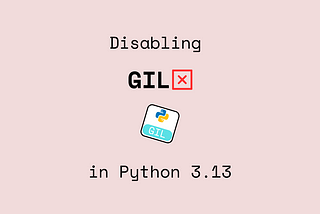The domain registration industry has a dirty secret that's becoming increasingly common: registrars are allegedly monitoring domain searches and quickly registering promising domains themselves, only to resell them at inflated prices. This practice, known as domain front-running, represents a significant breach of trust between registrars and their customers.
The Anatomy of Domain Front-Running
Here's how the scheme typically works: a potential customer searches for an available domain through a registrar's website. The domain appears available, but instead of purchasing immediately, the customer decides to think it over. Within 24-48 hours, that same domain mysteriously becomes "taken" and is now parked by the registrar or a related entity, available for purchase at a premium price.
While registrars often claim these domains were registered by "someone else," the timing and parking patterns suggest a more coordinated effort. The practice has been documented across multiple major registrars, indicating this isn't isolated behavior but potentially a systematic revenue strategy.
The Technical Reality
Every domain search query is logged and tracked. Sophisticated algorithms can identify potentially valuable domains based on search patterns, keyword relevance, and commercial potential. Once flagged, these domains can be automatically registered through the registrar's own systems.
Protecting Yourself: Best Practices
Use Independent WHOIS Services
The most effective defense is avoiding registrar search tools entirely. Instead, use:
- ICANN's official lookup service: https://lookup.icann.org/en
- Command-line WHOIS:
whois example.com - Third-party WHOIS services that don't sell domains
These services check domain availability without creating a commercial trail that registrars can exploit.
The "Ready-to-Buy" Rule
If you must use a registrar's search function, be prepared to purchase immediately. The window between search and registration should be measured in minutes, not days. This approach minimizes the opportunity for front-running algorithms to intercept your intended purchase.
Choose Registrars Wisely
Not all registrars engage in these practices. Research registrars with strong ethical reputations and transparent policies. Some developers recommend:
- Cloudflare Registrar (at-cost pricing)
- Smaller, specialized registrars with ethical commitments
- Registrars that explicitly prohibit front-running in their terms of service
The Broader Implications
Domain front-running represents a fundamental conflict of interest. Registrars are supposed to be neutral facilitators of domain registration, not competitors for the same domains their customers want. This practice:
- Artificially inflates domain prices
- Creates barriers for small businesses and individual developers
- Undermines trust in the domain registration ecosystem
- Potentially violates consumer protection regulations
Industry Response and Regulation
While ICANN has guidelines against registrar abuse, enforcement remains inconsistent. The practice exists in a legal gray area where proving intent can be difficult. However, increased awareness and customer complaints are beginning to pressure registrars to adopt more transparent practices.
Moving Forward
The domain registration industry needs stronger ethical standards and regulatory oversight. As developers and business owners, we can drive change by:
- Documenting and reporting suspected front-running incidents
- Supporting registrars with transparent, ethical practices
- Using independent tools for domain research
- Advocating for stronger consumer protections
The internet's domain system should serve innovation and entrepreneurship, not become a tool for exploitation. By understanding these practices and taking protective measures, we can navigate the domain landscape more safely while pushing for industry-wide reform.









